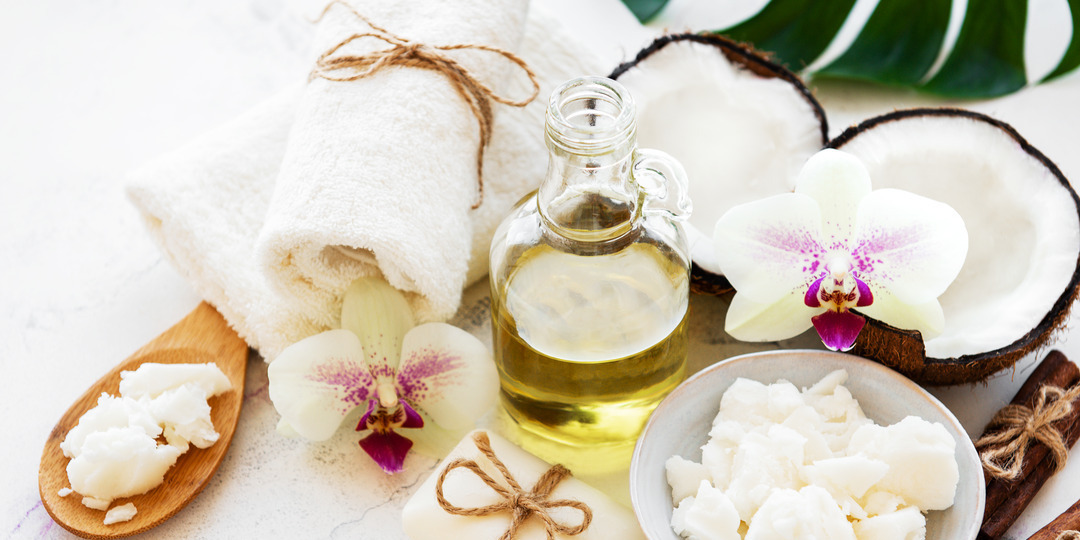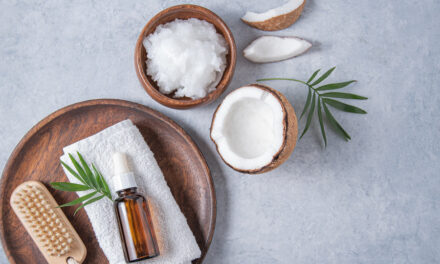
A DIY coconut oil hair mask is just what you need after a hectic week and want to unwind and relax. The good news is that the masks are not only soothing but also a great way to nourish and pamper your hair.
Coconut oil hair mask has been used for centuries, albeit not known with that name. That said, it’s safe to say some cultures use coconut oil only for their hair care and have covetable and lustrous locks.
So, let’s see how to incorporate coconut oil into our hair care routine for promoting hair growth, repairing damaged hair, curbing hair breakage, treating dry hair, and more.
Understanding the Benefits of Coconut Oil for Hair
There are many benefits to using coconut oil for your hair. The key benefits are as follows:
It moisturizes your locks and conditions it from within.
It strengthens your hair and combats protein loss.
Makes your hair strands smooth and shiny.
Frizzy hair? Try coconut to soothe frizz.
Do you know coconut oil is good at preventing hair breakage?
Not only does it prevent breakage, but do you know it combats scalp issues like dryness, itching, and dandruff?
It helps prevent and combat hair damage, especially chemical damage.
That it promotes hair growth is known, but do you know it can curb hair loss?
Is the Coconut Oil Hair Mask Suitable for All Hair Types?

Most hair types will benefit from the addition of moisture and protein. A few hair types would benefit the most when using coconut oil hair masks, like dry or frizzy hair, brittle hair, and curly hair.
However, there’s a saying there’s no one size fits all, and it’s especially true with hair care. Do a patch test and see if the coconut oil hair mask works. If you have any adverse reactions or results, stop.
Some of them with curly hair find coconut oil more drying, so see what works for you.
Easy DIY Coconut Oil Hair Mask
This DIY coconut oil hair mask recipe is very versatile and flexible. Let’s look at a basic recipe, and we’ll leave you with a few choices for tweaking. Ready to go?
Ingredients
- Coconut Oil – 1/4 Cup
- Jojoba Oil – 1 Tbsp.
- Castor Oil – 1/2 Tsp.
- Pine Bark Extract – 2 Drops
- Chinese Dodder Extract – 2 Drops
Preparation Method
- Warm up the coconut oil, jojoba oil, and castor oil in your double boiler.
- Once warm, remove from heat and add in all the other ingredients.
- Mix to combine.
How to Use?
Massage the coconut oil mask on your scalp.
Divide your hair into smaller sections and make sure to cover the entire scalp.
Apply the remaining coconut oil blend to your hair.
Comb through with a shampoo or detangling comb to spread evenly.
Wrap a warm towel and let it sit for 30 – 45 minutes.
Wash off, air dry, and style as usual.
Notes
We need melted coconut oil for the mask. You can use your double boiler to get melted coconut oil.
You can also add Saw Palmetto Extract, Sea Buckthorn Oil, or even Wheatgerm Oil to the coconut oil blend.
You can also add biotin, collagen, and MSM to give your mask a boost to promote hair growth.
Tips for Optimum Benefits
Apply an adequate quantity of coconut oil when applying the coconut oil hair mask, but not too much or too little. Applying less would not help much or yield the desired results. On the other hand, applying more could be counterproductive, leaving your hair greasy.
Use a hair coloring brush or, better still, a cotton ball to apply the coconut oil hair mask evenly and cover all areas of the scalp.
Massage for a few after applying, or comb with a broad-toothed or detangling comb so you don’t pull out the hair.
Caring for Your Hair Beyond Masks

Masks are undoubtedly a great way to nourish and nurture your hair. Coconut oil hair treatment is especially good for your hair and scalp. But, there’s more to caring for your hair for healthy hair and scalp. Let’s learn how.
Don’t wash your hair more than once or twice a week unless absolutely needed.
But the time between washes when needed using dry shampoo or other sprucing ways.
Don’t use chemical or heat styling treatments unless absolutely unavoidable.
Don’t push or pull your hair if you can help it. Treat it with gentle care to prevent breakage or to prevent friction.
Avoid back-combing your hair.
Don’t use more products than needed, as that will promote scalp residue.
Choose your hair care products with care – organic, natural, and sans harmful chemicals, damaging ingredients, SLS, alcohol, etc.
Use hair rinses to improve your hair texture, as against using styling products. For example, topical virgin coconut oil application to spruce your hair.
Conclusion
As with any other recipe, DIY involves trial and error before you identify what works for you best. Do tweak the recipe, give it your own twist, and see what works for you.
Don’t have time or inclination for DIY? We’ve got your back with a range of premium vegan hair cosmetics from Vitamins Revive. Do check out their online store to know more about their products.
As always, feel free to reach out to us for any questions or requests or to share our feedback or requests. We love hearing from our readers. Do let us know how you liked the recipe and how it works for you.
FAQs
How do you rinse out the coconut oil hair mask thoroughly to prevent scalp residue?
Apply just enough oil and wash out the coconut oil hair mask using a mild and gentle shampoo. You can also use an apple cider vinegar rinse to help restore the scalp’s pH levels, regulate sebum levels, and get shiny hair.
How often can we use the coconut oil hair mask?
You can use it once or twice a week.
Can I use other ingredients with coconut oil?
Of course, you can add other ingredients and tweak the recipe according to your requirements.
What coconut oil works best?
You can use organic coconut oil for this coconut oil hair treatment.
Can I use this coconut oil mask on damp hair?
This recipe is meant as a pre-shower treatment, and as such, your hair doesn’t have to be damp. Also, we’re soaking the oil for a bit, another reason we’re applying it on dry hair instead of damp hair.
Who should not use this recipe?
This recipe is suitable for most. However, if you’re allergic to any ingredients or see any adverse reactions on your patch test, you shouldn’t use it.
What are other ingredients that can be added to this recipe?
You can add flaxseed oil, rosemary essential oil, or other ingredients according to your requirements and preferences.
Can I swap the coconut oil for Jojoba oil?
Yes, you can. Jojoba is a great choice and closely resembles our skin’s sebum, making it suitable for everyone. If you’re allergic to coconut oil, feel free to swap it for Jojoba or another carrier oil of your choice.










